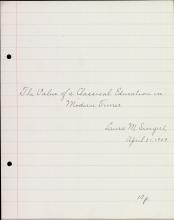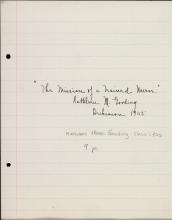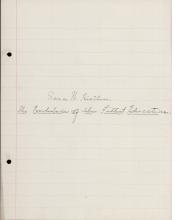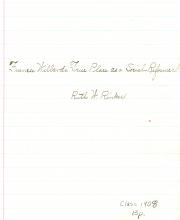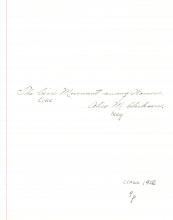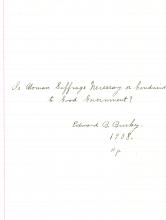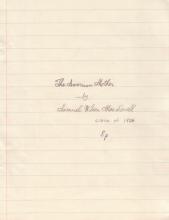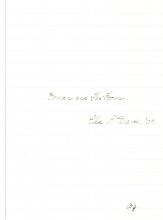Annie E. Miles' Oration"The Badge of the American Red Cross"
In her oration "The Badge of the American Red Cross," Anne E. Miles analyzed the founding and purpose of the Red Cross in America. She primarily discussed Clara Barton's role in the founding and the way in which the Red Cross transformed American philanthropy from personal donations to a more collective and organized model of giving.
Kathleen Moore Gooding's Essay "The Mission of a Trained Nurse"
In her essay titled "The Mission of a Trained Nurse," Kathleen Moore Gooding described the importance and progression of nursing in the United States. According to Gooding, prior to the nursing profession, monks and uneducated people cared for the sick. This led to much pain, sickness, and even death. However, it was not until Florence Nightingale that women became nurses and the profession took off. In closing, she highlighted the work of the Red Cross as proof of the success of the nursing profession.
Sarah H. Kistler's Essay "The Evolution of the Fittest Education", 1901
In her essay titled "The Evolution of the Fittest Education," Sarah H. Kistler analyzed the education system in the United States. She wrote that education "should be the whole system of preparation of youth for the life and work coming to the individual, to help on the pregress of the race by his influecne with, and work for , the fellow man.
Ruth W. Rinker's Essay "Frances Willard's True Place as Social Reformer"
In her essay "Frances Willard's True Place as Social Reformer," Ruth W. Rinker analyzed the life and work of Frances Willard. She argued that "In Frances Willard our age has lost one of its nobelest daughters, whose achievements for God and home and native land were such as to rank her as one of the most famous women of this century." Throughout her essay, she cited Willard's reform work in the women's ritghts and temperance movements.
Alice M. Clarkson's Essay "The Civic Movement Among Women," 1908
In her essay titled "The Civic Movement Among Women," Alice M. Clarkson analyzed women's influence in civic and reform movements of the early twentieth century. She argued that women's position as mothers in the home made them ideal candidates for social reform. She wrote, "They are the natural domestic housekeepers, and what more proper than that they should become civic housekeepers? they abate nuisances in the household. Why not in the city?" Clarkson contended that women's patience and persitence made them ideal reformers.
Samuel W. MacDowell's Essay "American Motherhood"
In his essay "American Motherhood," Samuel W. MacDowell argued that motherhood is one of the most important position a woman can hold. He contended that it was through motherhood, not the vote, that women were able to assert their influence within American society. He referenced Washington's, Adams', Lincoln's and McKinley's mothers to illustrate his point.
Ella P. Davis's Essay "Woman and the Home"
In her essay "Woman and the Home," Ella P. Davis discussed the ways in which society limited women's opportunities based on their gender. She wrote, "In a country where public life is capable of so much further development, and where civil and political funcations, which in other lands have come to be regarded as the rights of common citizen, are so grudgingly bestowed upon men of even the lightest intelligence, it is no wonder that the position of women is not an ideal one." Throughout her essay, Davis cites the German women's movement's influence on women's education.
"Should Women Vote?" by H. M. Showalter, class of 1904
In his essay "Should Women Vote?", H. M. Showalter argues for women's suffrage in 1904. He acknowledges that women are not given the right to vote because they are often the dependents of men like "minors and paupers." Due to their dependence, their vote could be swayed. However, Showalter does not see this as a legitimate reason for denying women the vote. He lists six premises for his conclusion. They are:
1. God created man and woman equal.
2. The Constitution gives equal rights to all.

